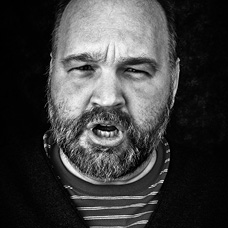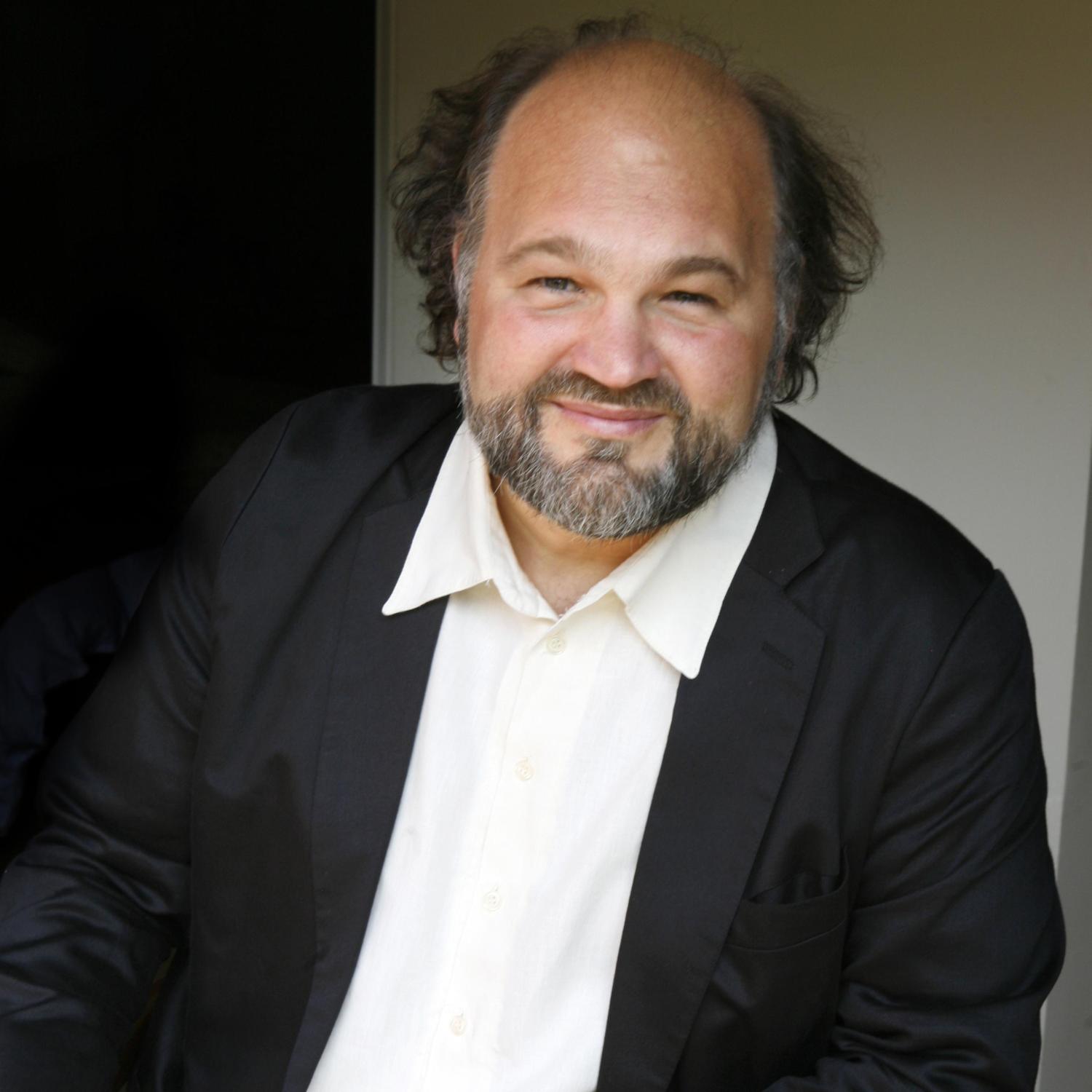Albert García Demestres
Contemporary music
(Albert García Demestres, Barcelona 1960)
Composer and tenor vocalist, he began his musical studies in Barcelona and extended his training in Germany, France and Italy. He studied lyrical singing and orchestra conducting at the Musikhochschule of Wuppertal and then electro-acoustic music at the Conservatoire National de Paris and at the IRCAM. He is a composer who showcases the most diverse influences, never escaping from a lyricism that he freely and willingly practices. He has never lost his rebellious and nonconformist spirit, which manifests itself through his music with freshness, communicability and brilliance. His great imagination and his ongoing search for surprising contrasts are bound to keep the listener intrigued.
Of his entire extensive catalogue, what especially stands out is his composition for vocals, the author’s instrument of choice. The first of his operas is Para ti-soledades sin sombra, for tenor, recited voice, a ballerina and an instrumental group, commissioned by the Fundación Juan March, which premiered in Barcelona in February 1987. He then presented the fun and original Aprima’t en 3 dies!, a commission from the Festival d’Estiu de Barcelona Grec 97, which premiered with the stage direction done by Cristina Pavarotti. There was the innovative opera in movement Valparaíso (1998), which was created for a parade the Barcelona designer Antoni Miró did on the Passarel·la Gaudí. In addition to Europa (2001), for recited voice and an instrumental group, there is his ambitious Mariana en sombras (2001), commissioned by Granada’s city hall. Inspired by the Spanish liberal heroine from the 19th century Mariana Pineda, this piece combines what is recited with vocals of great expressiveness and dramatic meaning. Lastly, he composed Els 5 dits de la mà (2002), for a children’s choir, violin, cello, percussion and piano.
On December 15, 2007, he conducted at the Auditorio de Modena (Italy) the premiere of Jocs de mans, an opera with a libretto written in collaboration with the poet Valentí Gómez i Oliver, which was presented in concert version with the vocals by Antoni Comas, Maria Gallego, Olivia Biarnés, Inés Moraleda and Stefano Palatchi. Two years later, on November 15, 2009, at the Luciano Pavarotti Theatre in Modena, they presented Il Sequestro, an opera with the libretto written by Garcia Demestres himself with the help of Cristina Pavarotti, transporting the oriental stories of A Thousand and One Nights to the 21st century. This premiere was long awaited since 172 years had gone by without a Catalan composer featured in the regular season of an Italian opera theatre. Cristina Pavarotti was in charge of staging, Giovanni di Stefano conducted, and vocals were by Antoni Comas, Alessandra Visentin, Alice Molinari and Paola Santucci. The work was awarded with the second prize «Opera Visa» from Houston-Texas.
One of the most eloquent signs of his rich eclecticism is the work commissioned by the Orquestra Simfònica de Barcelona i Nacional de Catalunya (OBC) La festa. Pepa Vargas in memoriam (2004), and his Stabat Mater (2004), commissioned and premiered by Cor Vivaldi and later performed again on various occasions before it was recorded. Vista i no vista, for clarinet on Sib i marimba (2006), supported by the Fundació Caixa Catalunya for the Ramón Gaya exhibit, is found on the first volume of the collection Estrenes a La Pedrera.
In the world of cinema, he has worked on the soundtrack for the Bigas Luna movie Volaverunt, as well as for the documentary Alfabet Tàpies, directed by Daniel Hernández. His soundtrack for the Televisión Española’s mini-series 23F: el día más difícil del Rey has received many prizes, namely from Nacional de Televisión 2010, the Academia de Televisión, the Gaudí award from the Acadèmia del Cinema Català and the Silver World Medal-Best Miniseries from the New York Festivals.
He also started up his own record label D+3 to showcase new talent instead of just recording and having his music heard. From 2000 to 2008, he was able to work both as a composer and as a host on a COM Ràdio program, “Tutto Demestres”, where he would support and spread the word for contemporary music, which then lead to the Tutto awards for young performers, a competition that took place seven years in a row.
In October 2011, he was the Invited Composer for the festival The Seasons in Yakima, Washington, at a time when his work was getting more and more renown. There he premiered the works Maternitat, based on a text by the Catalan poet Àlex Susanna, and Genuine Smiles, an orchestral piece performed by the Yakima Symphony Chamber Orchestra and conducted by Daron Hagen.
In 2012, he was invited to the artist residence Yaddo in Saratoga Springs, New York, and in July of that same year, at the Summer Festival of Opera Theatre in Pittsburgh, he premiered Honeymoon Suite, one of six scenes that comprise an opera, Night Caps, also signed by the composers Daron Aric Hagen, Gilda Lyons, Roger Zahab, Eric Moe and Dwayne Fulton. This was with a shared libretto by Rob Handel, which featured Rob Frankenberry as the conductor and Jonathan Eaton, the Director of the Pittsburgh Opera, in charge of staging.
On August 14, 2013, the author added a new title to his extensive lyrical catalogue, the inspiring and poetic Wow!, chamber music in one act, based on texts by Walt Whitman and Oscar Wilde, premiered with great critically-acclaimed success at the Festival Castell de Peralada (Girona), conducted by the author himself, brought to stage by Xavier Albertí and the voices of the baritone Joan-Martín Royo, the tenor Antoni Comas and the soprano Elisenda Pujals. For July 2014, he has a new opera premiere scheduled called L’eclipsi, commissioned by the Teatre Nacional de Catalunya.





 twitter
twitter flickr
flickr facebook
facebook RSS
RSS spotify
spotify youtube
youtube
